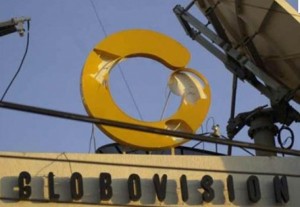We always knew this day would come...

Plenty of scars to show for its trouble
And so, as long expected, the government has decided to shut down the last remaining opposition broadcaster: Globovision. And as long surmised, the decision is to be implemented not with tanks or a militia platoon, but via a dry, ostensibly technical administrative decision.
By design, the details are slightly murky. With a decision to shut Globo out of the digital TV switchover, the station is sentenced to a slow, graudal death until the day when, long forgotten, the analog signal is finally switched off.
The government, it seems, learned its lesson from the RCTV fracas. There will be no countdown to midnight this time, no celebrities weeping as the clock ticks down. Globovision’s shutdown will be a process, not an event. And yet, having been denied a digital frequency, its fate is sealed.
When the time comes to write the history of the Chávez Years, one big fat chapter of it will be titled “Globovision”. And if the historian is thorough and tough, it will be a complex chapter with plenty to make both sides of our hyperpolarized public sphere cringe.
Is Globovision a bulwark of resistance to autocracy, fearlessly reporting the stories and asking the tough question the regime fears and loathes? Or is it a resonance chamber where the most socially backward element of the old elite talks to itself in circles, locking itself away in its own certainties and losing touch with the realities of life for the millions born outside the bubble of privilege?
It’s both, and much else besides.
For years, Globovision acted as a de facto opposition news agency, with regional papers and broadcasters taking their leads from Alta Florida when choosing stories and front pages. For years, Alberto Federico Ravell and María Fernanda Flores played the parts of a tropical Roger Ailes – their willingness to put you and keep you on the air could make or break the career of an aspiring opposition politician. For years, much more than any Coordinadora Democrática or MUD instance, it was what they decided that became the opposition “line”.
Perfectly attuned to the concerns of their core audience – by scrutinizing their ads you shall know them – they were catastrophically tone deaf to the concerns of everyone else in the country in ways they only started to address far too late, through the addition of shows like Radar de los Barrios that, while vital, were tokenistic. At times, they just plain surrendered any pretense to be perpetrating an act of journalism, through their absolutely unashamed boosterism for the opposition cause du jour, as chronicled in this classic Nagel post from the 2006 presidential campaign.
Yet for all its many faults, for the ways, big and small, it drove me crazy, they were the guys out there doing it. It was their drivers getting their trucks shot at, their reporters getting hounded, beaten, intimidated and harassed every time they set foot on chavista “territory”, their anchors asking the obvious questions the government was determined to leave unanswered, their lawyers dealing with a zillion and one insane government actions against them, and their owners ploughing their money into a concern they could expect nothing but losses from.
As the government moves decisively now to pull the (digital) plug on the station, the time has come to salute Globo: Y’all had no idea what you were doing, but you did it with cojones.
Caracas Chronicles is 100% reader-supported.
We’ve been able to hang on for 22 years in one of the craziest media landscapes in the world. We’ve seen different media outlets in Venezuela (and abroad) closing shop, something we’re looking to avoid at all costs. Your collaboration goes a long way in helping us weather the storm.
Donate

